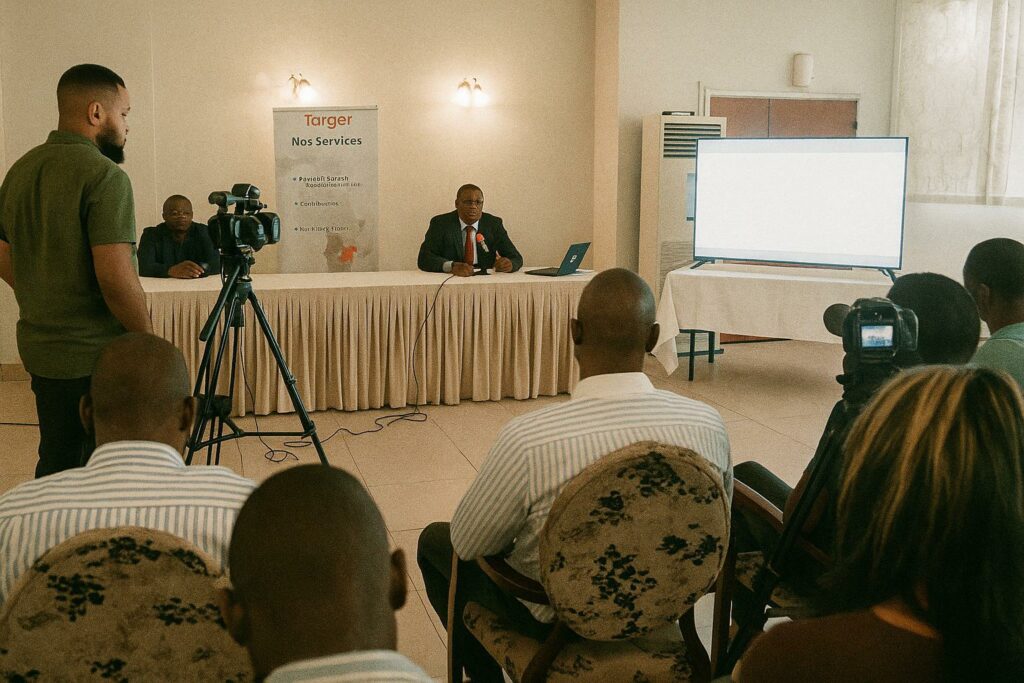Demographic dividend collides with a data vacuum
In the corridors of many foreign ministries, Central Africa is still too often discussed through the prism of security or extractive commodities. Yet the region’s demographic profile is quietly altering its economic narrative. More than sixty per cent of citizens in the Republic of Congo, Gabon, Rwanda and their neighbours are below twenty-five, according to the United Nations Department of Economic and Social Affairs (UN DESA 2022). Until recently, however, decision-makers lacked granular insight into how this youth bulge earns, spends and aspires. The market-research firm Target has attempted to fill that void, releasing what it touts as the first qualitative cross-border portrait of Generation Z consumers aged eighteen to twenty-five in seven Central African states. Conducted through encrypted online focus groups from Brazzaville to Bujumbura, the study traces daily expenditures, digital immersion, attitudes to banking, gambling and even contraception.
Digital immersion reshapes everyday micro-economies
Target’s respondents report spending up to five hours a day on smartphones, a figure that echoes GSMA’s regional connectivity estimates of seventy-seven per cent mobile-internet penetration among urban youth (GSMA 2022). The handset has become a marketplace, cinema and guidance counsellor in a single glass slab. Mobile data packages, on-demand video subscriptions and in-app gaming purchases compete with traditional expenses such as public transport or street food. Interviewees describe a preference for “low-commitment” micro-transactions: a one-day bundle for streaming a Champions League match, a single-serving mobile money transfer, or a sachet beverage purchased on the walk to class. For multinationals accustomed to monthly billing cycles and bulk packaging, this atomised spending rhythm represents both a logistical headache and an untapped goldmine.
Bankers court the unbanked as mobile wallets proliferate
Only thirty-one per cent of Central African adults hold a formal bank account, the World Bank’s Global Findex suggests. Yet mobile-money penetration among Gen Z in the Target survey surpasses sixty per cent. Commercial banks from Douala to Kinshasa are therefore racing to embed their services inside telecom ecosystems before nimble fintechs claim the field entirely. “We are witnessing the same leapfrog we saw in East Africa a decade ago, but compressed into half the time,” argues Valérie Ondo, strategy chief at a regional banking union. Regulators, meanwhile, grapple with the prudential implications of instant peer-to-peer lending features that sprout faster than statutes can be drafted.
Influencers as micro-diplomats of aspiration
The study devotes an entire chapter to the role of social-media influencers, an ecosystem that now shapes not only purchasing choices but also political discourse. A music blogger in Libreville who commands two hundred thousand TikTok followers can determine the fate of a new soft-drink flavour more decisively than a million-dollar billboard campaign. Governments, conscious of this soft power, increasingly invite high-profile vloggers to public-health launches and even regional trade summits. As political scientist Landry Ndombe observes, “in Central Africa the influencer is quickly becoming the de-facto cultural attaché of the digital republic”.
Regulatory lag in gambling, beverages and reproductive health
Target’s findings on gambling and contraceptive use illuminate a policy grey zone. While online sports-betting platforms advertise aggressively during European football broadcasts, most regulatory codes date back to the pre-smartphone era and rely on enforcement mechanisms ill-suited to encrypted apps. A similar mismatch surfaces in alcohol and energy-drink marketing, where sachet packaging circumvents minimum-purchase rules designed for bottled beverages. Public-health officials interviewed for the study acknowledge the gap. “Our legislation was written for bars, not for an algorithm that pushes odds to a teenager’s lock screen,” concedes Dr. Jean-Claude Itoua of Congo’s Health Ministry.
Strategic horizons for brands and diplomats
For consumer-goods executives, the report offers an early-warning radar of weak signals: a spike in demand for cruelty-free cosmetics among Gabonese students, or a preference for pan-African hip-hop soundtracks on streaming platforms over French-language pop. For diplomats, the data carry broader resonance. The African Continental Free Trade Area cannot reach full potential if the region’s most dynamic consumers remain statistically invisible. Development finance institutions may find in the study a blueprint for directing credit toward youth-led enterprises that already operate on social-commerce rails. As Serge Mumbu, Target’s managing director, summarised at the Brazzaville launch, “Data sovereignty begins with simply knowing who is on the other end of the phone.”
From insight to policy instrument
The firm intends to release sector-specific spin-offs on banking, downstream petroleum and mass retail in September. Their timing could prove fortuitous. Congo is drafting a new digital-economy bill, while the Economic Community of Central African States is finalising harmonised e-commerce tax rules. Robust consumer evidence may nudge these frameworks from aspiration to actionable blueprint. The region’s Gen Z cohort is not waiting. As one Brazzaville focus-group participant quipped, “If an app is slow, we delete it”. Markets and policymakers alike would be wise to treat that impatience as the key performance indicator of the decade.

